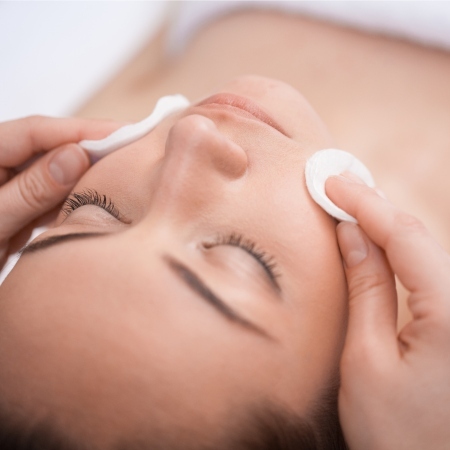CHEMICAL PEELS

What is a chemical peel?
A chemical peel involves the application of a chemical solution on the skin to remove its top layers. The depth of the peel can vary from light to medium to deep, and the results will differ accordingly. It’s recommended to seek guidance from a trained aesthetician or medical provider to determine the appropriate peel depth for your skin.
What should I expect during a chemical peel?
The duration of a chemical peel treatment depends on the strength of the peel and the desired correction. The application usually lasts for 30 minutes and may cause mild discomfort as the solution is applied. Within 24 hours of application, patients can expect the skin to begin peeling, which may continue for up to 10 days.
Medical-grade TCA chemical peels, administered by our board-certified dermatologists, are highly effective in pulling dark spots and significantly improving the appearance of fine lines and wrinkles.
What areas does it treat?
- Face
- Neck
- Decolletage
TREATMENT OVERVIEW
TYPE:
- Skin Resurfacing
BENEFITS:
- Improves collagen production
- Reduce fine lines and wrinkles
- Reduce Blemishes
- Uneven skin pigmentation
RESULTS:
- Results in 1 week
- Smooth, soft, youthful skin
- Evened skin tone


